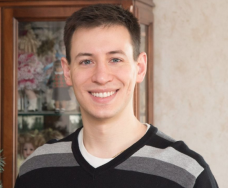 From June 19th to the 26th, bishops from Orthodox Christian Churches around the world gathered together on a scale that has not been matched for over 1,000 years. This week, our blog is written by UniteBoston Rep Jason Oneida, who updates us on the decisions made at the Pan-Orthodox Great and Holy Council and its worldwide witness towards Christian unity.
From June 19th to the 26th, bishops from Orthodox Christian Churches around the world gathered together on a scale that has not been matched for over 1,000 years. This week, our blog is written by UniteBoston Rep Jason Oneida, who updates us on the decisions made at the Pan-Orthodox Great and Holy Council and its worldwide witness towards Christian unity.
————

From June 19th to the 26th, bishops from Orthodox Christian Churches around the world gathered together on a scale that has not been matched for over 1,000 years. Ecumenical Patriarch Bartholomew of Constantinople issued the invitation for Orthodox bishops everywhere to come together for a great, holy council. The goal of the united body of hierarchs was to advance work their predecessors began generations ago. Over 340 bishops responded to the call and met His All-Holiness at the Orthodox Academy on the island of Crete in Greece. These bishops accompanied their Primate, or leader, in delegations representing their respective local church. Of the fourteen autonomous Orthodox Churches in the world, united by God through common faith and sacramental grace, ten were represented at the council.
The work of organizing the council began in 1930 with a preparatory council that drafted a list of 17 topics for discussion. The 17 topics were combined and reduced down to six through additional pre-conciliar conferences between 1961 and 2015. Unanimity—the ability for all Churches to come to a common mind and witness—was the primary criteria for selecting the topics covered at the Great and Holy Council of 2016. The capability of coming to unanimous decisions was carefully crafted through years of dialog before the council began. Such careful planning allowed the Church to issue resolutions with an authoritative voice backed by all the participating bishops. As a result, one of the primary outputs from the Holy and Great Council was six joint statements on the following topics: the importance of fasting and its practice, the relation of the Orthodox Church to the rest of the Christian world, the mission of the Orthodox Church in today’s world, the sacrament of marriage, and organization of multinational councils of bishops throughout the world.
A gathering so long in the making surely begs a simple, powerful question: what does the council’s work mean for us? In particular, how does it speak to Christian ministry in the greater Boston area? The Great and Holy Council provides reinforcement to Unite Boston’s mission for unity and a guide for future ministry endeavors.
The Great and Holy Council embodied Jesus’ call for unity among all people in its mission statement, organization, and very nature. It is no coincidence that the council was chosen to begin during the Orthodox Christian celebration of Pentecost. And it is also no accident that the council took its slogan, “He called all to unity,” from a hymn sung in honor of this feast day. Furthermore, the council’s method of coming to consensus through dialog and the search for unanimity also bear the mark of desire for unity. All these aspects of the council indicate the overriding truth that unity is essential for humanity. We are not strong alone, but rather when we are gathered together in Christ’s name so that He is among us. Therefore, work toward Christian unity is of the utmost importance to the future of mankind. Following the council’s example, we must strive to understand each other and come to a common mind. We must continue to create opportunities for dialogue that removes the various barriers that separate people.

The wisdom of the Great and Holy Council also provides a guide for future ministerial endeavors. One of the greatest concerns for humankind discussed by the bishops at the council was the ecological crisis. Exploitation of the natural environment to suit human desires has resulted in serious problems with climate change, extinction of a large number of our planet’s diverse lifeforms, and poisoning of our environment. The members of the Holy Council called on Christians to view the attitude of indifference toward creation as a sin fully warranting our repentance. In order to truly be the Church, we must seek to right this situation through prayer, education, and organized action. Let us Christians respond to this call, taking it as an opportunity to be leaders in new environmental ministries that help us fulfill our vocation as caretakers of creation. Here we have an opportunity to be prophetic voices that remind the world of the truth that God made humanity to live in harmony with His good creation.
There is much more to say about the Great and Holy Council than can be presented here. If you would like to learn more, please visit the official website at www.holycouncil.org. There you can see the press releases, read the statements issued, and see videos of the proceedings.
Leave a Reply